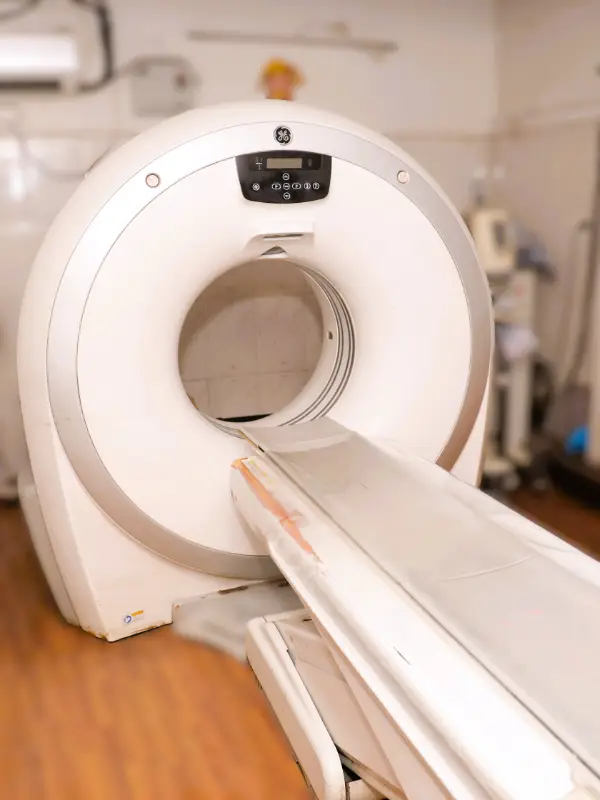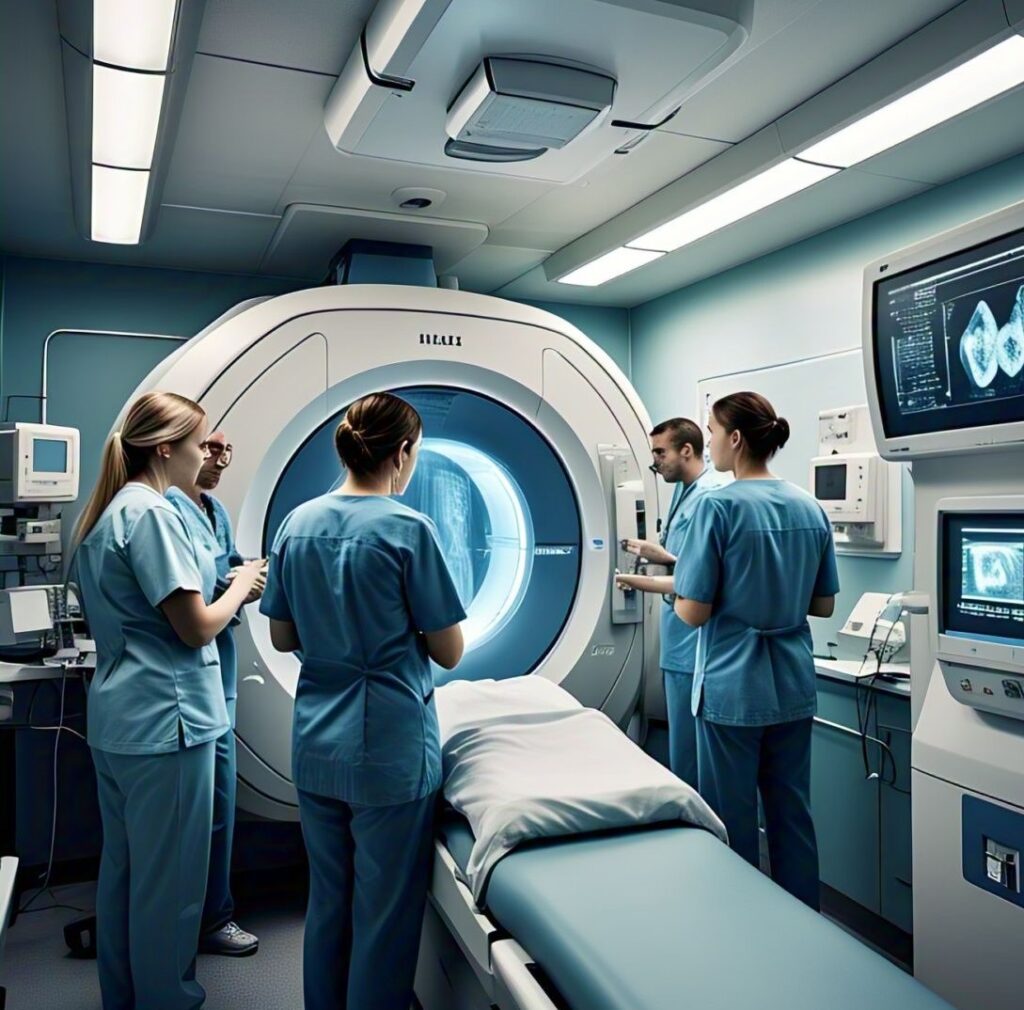
Alpha Imaging is proud to offer the latest generation CT scanner, designed to provide exceptional image quality with significantly reduced radiation exposure. In some cases, particularly for limb imaging, the radiation dose is lower than that of a conventional digital X-ray.
How CT Scanning Works
A CT scanner uses X-ray technology to capture detailed cross-sectional images of the body. With multi-slice (or multi-detector) technology, modern CT scanners can obtain multiple thin slices in a single rotation. This advanced capability allows for:
✔ High-resolution 3D imaging from various angles.
✔ Improved diagnostic accuracy across multiple conditions.
✔ Faster scanning times for enhanced patient comfort.
CT Scanning and Its Diagnostic Role
CT scans are invaluable for diagnosing various conditions, particularly in the chest, abdomen, pelvis, and vascular system.
✔ CT Angiography – Used to diagnose aneurysms, arterial blockages (stenosis), and pulmonary embolisms (blood clots in the lungs).
✔ Musculoskeletal & Orthopedic Imaging – Provides clear visualization of bones, joints, and prosthetic implants, often with a lower dose than standard X-rays.
✔ Spinal Imaging – Ideal for assessing spinal conditions when MRI is not an option.
✔ Interventional CT Procedures – Used for precise guidance in biopsies, drainage procedures, and spine injections.

Ultra-Low Dose CT Technology at Alpha Imaging
Our cutting-edge CT scanner delivers high-resolution diagnostic images at a significantly lower radiation dose. This is particularly beneficial for:
✔ Musculoskeletal and orthopedic imaging, with doses comparable to or lower than digital X-ray.
✔ Imaging of prosthetic joints and metallic implants, reducing artifacts and improving visualization.
✔ Interventional procedures, ensuring safer, more precise treatments.
Experience the Future of CT Imaging at Alpha Imaging
With faster scan times, lower radiation exposure, and superior image clarity, our advanced CT technology ensures more accurate diagnoses and better patient outcomes. Schedule your CT scan today!
Patient Information
What is a CT Scan?
A CT (Computed Tomography) scan is an advanced medical imaging procedure that uses X-rays and computer technology to create detailed cross-sectional images of the body.
Purpose of a CT Scan
✔ Diagnostic Imaging – Helps detect and monitor injuries, infections, tumors, and vascular diseases.
✔ Treatment Planning – Provides highly detailed images to assist in biopsies, drainage procedures, and other medical interventions.
Patient Preparation
✔ Fasting (if contrast is used) – You may be required to fast before the scan, depending on the type of procedure.
✔ Clothing – Wear comfortable, loose-fitting clothing and remove any metal objects or jewelry.
✔ Medical History – Inform the team of any allergies, medical conditions, or previous reactions to contrast agents.
Use of Contrast Material (if applicable)
✔ Purpose – Enhances the visibility of specific areas for a more detailed scan.
✔ Allergies – Notify our team if you have allergies, especially to iodine-based contrast agents.
✔ Renal Function – If you have kidney issues, inform us, as contrast material may impact kidney function.
During the CT Scan
✔ Positioning – You will lie on a motorized table that moves through the CT scanner. Staying still is important for clear images.
✔ Breathing Instructions – Follow the technologist’s guidance on breath-holding or specific breathing patterns.
After the CT Scan
✔ Resume Normal Activities – Most patients can immediately return to their daily routine.
✔ Hydration – Drink plenty of fluids to help flush contrast material from your body (if used).
Results and Risks
✔ Consultation – Your healthcare provider will discuss your results and next steps.
✔ Radiation Exposure – Our ultra-low dose CT scanner minimizes radiation exposure, but please inform us if you are pregnant.
✔ Contrast Material Risks – Allergic reactions are rare but possible. Report any unusual symptoms immediately.
